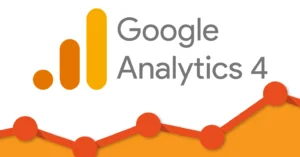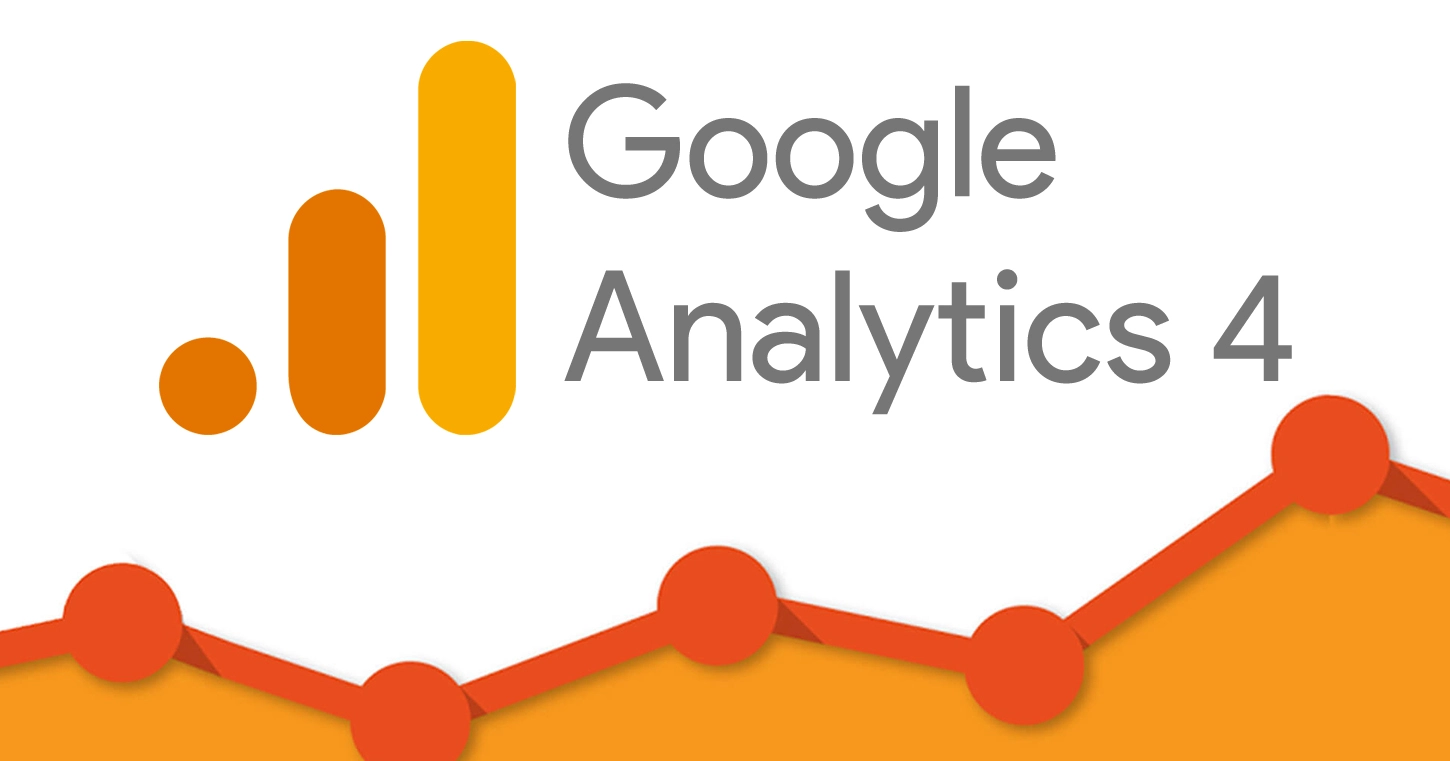Introduction: Evolution of Google Analytics
Google Analytics has been a vital tool for businesses since its inception. It has provided valuable insights into website traffic, user behavior, and conversions. However, with the ever-changing digital landscape and the rise of mobile devices, a more advanced and flexible analytics solution became necessary. This led to the development of Universal Analytics 4, the next generation of Google Analytics.

What is Google Analytics 4?
Google Analytics 4 is an advanced analytics platform that utilizes machine learning and artificial intelligence to provide businesses with a comprehensive understanding of their customers’ journey across devices and platforms. It offers a more holistic view of user behavior, allowing businesses to track interactions across websites, mobile apps, and other digital platforms. Google Analytics 4 is designed to meet the evolving needs of businesses and provides powerful insights to drive growth and success.
Key Features and Benefits of Google Analytics 4
- Enhanced Cross-Platform Tracking
In today’s multi-device world, users interact with businesses through various touchpoints. Search engine Analytics 4 enables businesses to track user interactions seamlessly across websites, apps, and other digital platforms. This holistic view of user behavior provides valuable insights into how users engage with your brand, regardless of the device or platform they use.
- Smarter Insights with AI
One of the most exciting features of Universal Analytics 4 is its integration of advanced machine learning and AI capabilities. The platform automatically generates insights and predictions, helping businesses uncover hidden opportunities and trends. With AI-powered insights, you can make data-driven decisions and optimize your marketing strategies for better results.
- Event-Driven Data Model
Unlike the previous version of search engine Analytics, which focused on pageviews, search engine Analytics 4 introduces an event-driven data model. This means that every interaction and action on your website or app is treated as an event. Events can be customized to track specific actions, such as button clicks, form submissions, or video plays. This event-driven approach provides granular data and a deeper understanding of user behavior.
Improved Data Controls and Privacy
Data privacy and security are of utmost importance in today’s digital landscape. Search engine Analytics 4 offers enhanced data controls, giving businesses more flexibility and control over the data they collect. With improved consent management features and options to handle user data, businesses can ensure compliance with privacy regulations and build trust with their customers.
- Migrating to Google Analytics 4
If you’re already using universal Analytics, migrating to Google Analytics 4 is a straightforward process. The platform provides easy-to-follow guides and resources to help you make a smooth transition. While the previous version of universal Analytics will still be available, Google Analytics 4 is the future of analytics and offers more robust features and insights.
Setting up Google Analytics 4 for Your Website
Setting up Google Analytics 4 for your website is essential to start harnessing its power. Let’s walk through the key steps involved:
- Creating a Google Analytics 4 Property
To get started, you need to create a universal Analytics 4 property. Sign in to your Google Analytics account and follow the setup wizard to create a new property. Provide the necessary information, such as your website’s URL and business details. Once the property is created, you will receive a unique tracking ID.
- Implementing the Google Analytics 4 Tracking Code
After creating the property, you need to implement the search engine Analytics 4 tracking code on your website. This code allows Google Analytics to collect data and provide insights. Depending on your website platform, you can add the tracking code manually or use plugins or integrations provided by your CMS (Content Management System).
- Navigating the Google Analytics 4 Interface
Once you have set up Goo Analytics 4, let’s explore the user interface and the key sections:
Home Dashboard
The home dashboard provides an overview of your website’s performance, including key metrics, user engagement, and conversion data. It gives you a snapshot of your business’s overall health and performance.
- Exploring Reports and Insights
Search engine Analytics 4 offers a wide range of reports and insights to help you understand user behavior. From audience demographics to user acquisition channels, you can dive deep into various aspects of your website’s performance. The platform also provides AI-generated insights and predictions, which can uncover hidden patterns and opportunities.
- Analyzing User Engagement and Behavior
Understanding how users engage with your website is crucial for optimizing user experiences. Google Analytics 4 provides detailed information on user engagement, including session duration, pageviews, and bounce rates. This data helps you identify areas for improvement and make data-driven decisions to enhance user satisfaction.
- Measuring Conversions and Goals
Conversions and goals are key metrics to track the effectiveness of your marketing efforts. With Google Analytics 4, you can set up and track conversions and goals, such as newsletter sign-ups, purchases, or form submissions. By analyzing conversion data, you can identify the most effective marketing channels and optimize your campaigns for better results.
Advanced Tips and Best Practices for Google Analytics 4
To make the most out of Google Analytics 4, consider implementing the following advanced tips and best practices:
- Customizing and Configuring Data Streams
Google Analytics 4 allows you to create custom data streams to track specific interactions or events on your website or app. By customizing data streams, you can gain deeper insights into user behavior and track metrics that are relevant to your business goals.
- Utilizing Custom Dimensions and Metrics
Custom dimensions and metrics enable you to collect and analyze data beyond the default metrics provided by Google Analytics 4. You can define custom dimensions to track specific user attributes or behaviors, and custom metrics to measure unique metrics that are relevant to your business. This level of customization provides a more tailored view of your website’s performance.
- Leveraging Enhanced Ecommerce Tracking
If you run an e-commerce website, leveraging the enhanced ecommerce tracking feature in Google Analytics 4 is essential. It allows you to track and analyze the entire customer journey, from product views to purchases. With detailed ecommerce data, you can optimize your product offerings, pricing strategies, and marketing campaigns to drive more sales.
Integrating universal Analytics 4 with Google Ads allows you to track the performance of your Google Ads campaigns directly within the analytics platform. You can gain insights into the effectiveness of your ads, track conversions, and optimize your ad spend. This integration provides a seamless way to measure the ROI of your advertising efforts.
8. Conclusion
In today’s data-driven world, understanding user behavior and making data-driven decisions is crucial for business success. Google Analytics 4 offers a powerful and comprehensive analytics solution that can unlock valuable insights to optimize your online presence. By leveraging its advanced features, businesses can track user interactions, gain actionable insights, and enhance their marketing strategies. Embrace the power of search’s engine Analytics 4 and elevate your business to new heights.
9. FAQs (Frequently Asked Questions)
9.1 What is the difference between Google Analytics and Google Analytics 4?
search engine Analytics 4 is the next generation of Search engine Analytics and offers advanced features such as enhanced cross-platform tracking, AI-powered insights, and an event-driven data model. It provides a more comprehensive and holistic view of user behavior compared to the previous version of search engine Analytics.
9.2 Can I use Google Analytics 4 alongside the previous version?
Yes, you can use search engine Analytics 4 alongside the previous version of Search engine Analytics. However, Search engine Analytics 4 is designed to be the future of analytics, and migrating to it is recommended to take advantage of its advanced features and insights.
9.3 Is Google Analytics 4 suitable for small businesses?
Yes, search engine Analytics 4 is suitable for businesses of all sizes, including small businesses. It offers valuable insights and data-driven decision-making capabilities that can help small businesses optimize their online presence, understand their customers, and drive growth.
How can search engine Analytics 4 help in improving website performance?
search engine Analytics 4 provides detailed information on user engagement, conversion metrics, and user behavior. By analyzing these insights, businesses can identify areas for improvement, optimize user experiences, and make data-driven decisions to enhance website performance.
9.5 Is Google Analytics 4 compliant with data privacy regulations?
Yes, search engine Analytics 4 is designed with data privacy in mind. It offers enhanced data controls, consent management features, and options to handle user data in compliance with data privacy regulations. Businesses can ensure the privacy and security of user data while harnessing the power of analytics.
